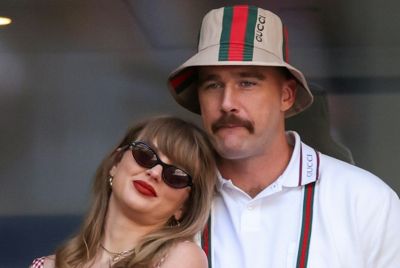Raul Rocha Said Fatima Bosch Is 'Not The Prettiest' or 'Best Walker' — Just 'Best' For Miss Universe Brand: Jordi Martin
The Miss Universe 'rigging' scandal erupts: read the former judge's claims of a secret jury and recording that casts doubt on the crown.

Imagine the dazzling spectacle: the lights, the glamour, the hopes of over 130 women distilled into one night. For millions, the Miss Universe pageant is the ultimate celebration of global beauty, ambition, and female empowerment.
But what if the stage lights were merely a distraction, masking a darker, more pre-determined reality?
This is the explosive claim at the heart of the latest scandal to rock the venerable competition, one that alleges the true measure of a winner might not be her intelligence, walk, or beauty, but rather, her connections and the strategic imperatives of the brand.
The drama unfolded mere days before the grand finale in Bangkok on Friday, 21 November, when musician and composer Omar Harfouch, a confirmed judge for the 74th Miss Universe Competition, suddenly withdrew.
His resignation, announced via an Instagram Story, wasn't a quiet exit; it was a detonation. Harfouch expressed his 'profound confusion and concern' after allegedly discovering the existence of an 'impromptu jury' formed in secret to pre-select 30 finalists from the 136 participating countries.
This secret selection, he claimed, occurred before the official judges had even convened and was kept 'secret.'
The 'Symbolic' Jurors and the Battle for Transparency in the Accusations
Harfouch's initial allegations centred on the lack of transparency and the questionable composition of this unofficial selection panel.

In a second post, he alleged the group was 'composed of individuals with a significant potential conflict of interest due to some [personal] relationships with some of the Miss Universe contestants, including the person responsible for counting the votes and managing the results, which constitutes a further conflict of interest.'

He claimed his objection to this preliminary selection was met with a hasty, non-specific social media post from Miss Universe officials featuring a carousel of 'Beyond the Crown Selection Committee' members, though Harfouch was not among the eight people listed.


The Miss Universe Organization swiftly responded on 18 November via their official Instagram page, firmly denying the claims and stating that 'no impromptu jury has been created' and that all evaluations 'continue to follow the established, transparent, and supervised MUO protocols.'
However, Harfouch doubled down on his claims, speaking to the U.K. newspaper The Times. He asserted, 'While we — eight confirmed judges — were selected to represent fairness, cultural diversity and artistic vision, this parallel group operated in secrecy and made decisive choices, including the pre-selection of 30 contestants, before we had even arrived.'
Crucially, he claimed his attempts to address the 'lack of transparency' with Miss Universe president Raul Rocha led to a 'disrespectful conversation'. Harfouch recalled: 'I proposed restarting the selection process from zero, in full transparency, with the eight official judges present.' Rocha, he claimed, 'refused the proposal and responded with hostility, making it clear that our presence as official jurors was only symbolic'.
This resignation sparked a ripple effect, lending credence to the composer's fears. French soccer manager and former pro, Claude Makélélé, also announced he would not serve as a judge in an Instagram post, citing 'unforeseen personal reasons', while Harfouch later told People that Princess Camilla di Borbone delle Due Sicilie from the selection committee had also withdrawn two days before the event.
A Tainted Crown? The Insider Testimony on the Outcome
The most damning piece of alleged evidence came in an Instagram Story posted by Omar Harfouch, involving a communication with Spanish paparazzi photographer Jordi Martin.

According to Harfouch, Martin claimed to possess an explosive recording concerning the final result, which saw Miss Mexico Fátima Bosch take the crown.
Martin's reported message stated: 'Hi Omar. Nice to meet you. As I told you, I have a recording where Raul admits that he indicated Venezuela couldn't win. And regarding Mexico, he tells me that she's not the prettiest or the best walker, but for the Miss Universe brand, they had to make her win.'
This claim suggests the result was a calculated business move, not a reflection of a fair competition. It comes two weeks after a viral livestream showed pageant executive Nawat Itsaragrisil scolding Bosch for allegedly refusing a social media photo shoot—an incident followed by several other contestants walking out with her.
For Harfouch, the alleged manipulation is deeply personal.
He lamented to The Times: 'Many of these women come from humble backgrounds. They invest everything — emotionally, financially and physically — for a chance to shine. When the process is manipulated behind closed doors it's not just unfair, it's harmful. It tells young women that no matter how hard they work, someone's connections or private influence may count more than their voice, talent, or beauty. That's not empowerment — it's betrayal.'
The Miss Universe Organization has not publicly commented on Harfouch's recent claims involving the alleged recording. The scandal raises serious questions about the integrity of a pageant that claims to champion female success.
Whether 'symbolic' or not, the role of a judge in such a high-stakes competition should be to uphold fairness, a principle many now fear has been utterly abandoned in the quest for the 'Miss Universe brand.'
© Copyright IBTimes 2025. All rights reserved.






















